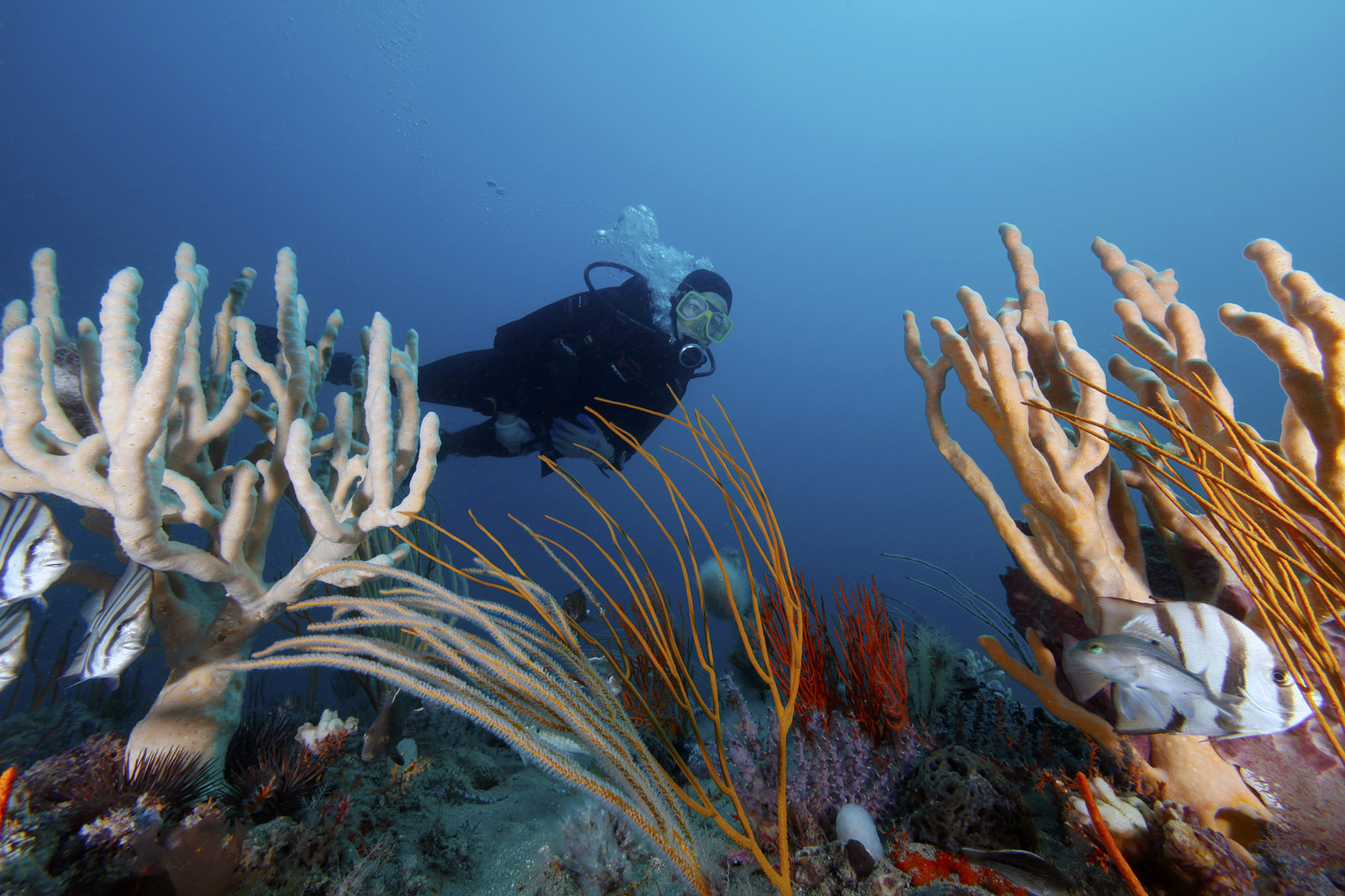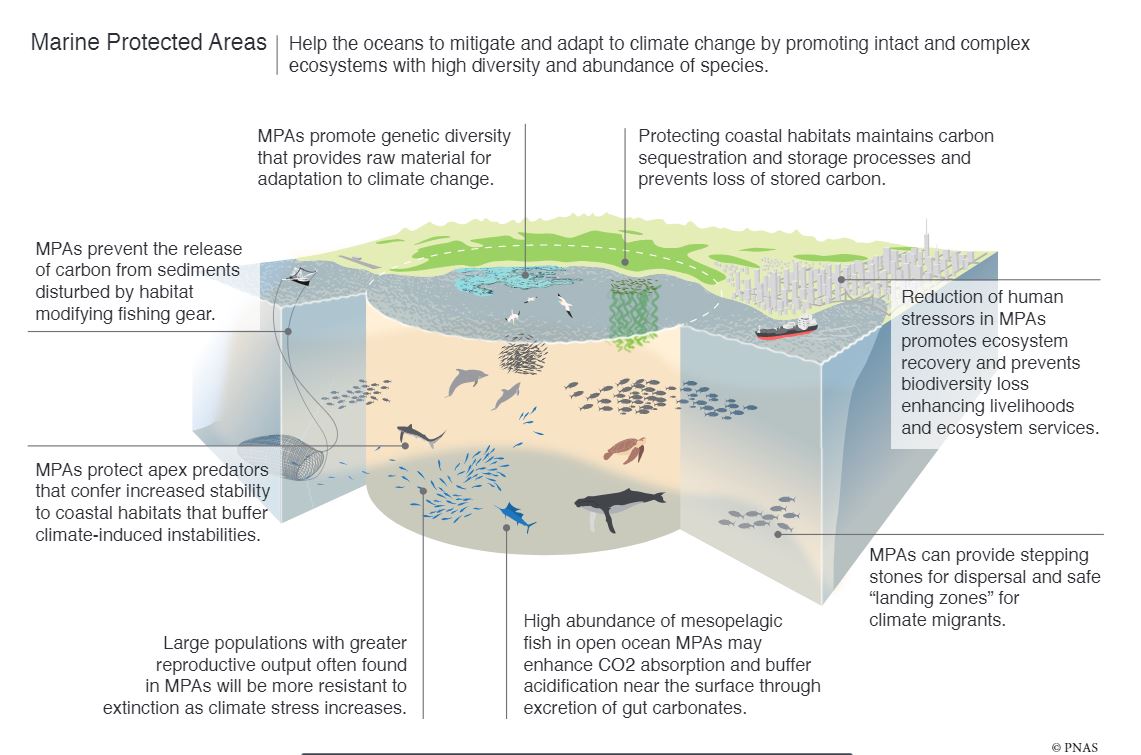
Gray’s Reef National Marine Sanctuary. Photo by NOAA’s National Ocean Service, Flickr.
Highly protected marine reserves can help mitigate against the impacts of climate change, a study by a team of international scientists has concluded.
Scientists say reserves can help marine ecosystems counter fight five key impacts of climate change: ocean acidification; sea-level rise; increased intensity of storms; shifts in species distribution, and decreased productivity and oxygen availability.
Reserves can also promote uptake and long-term storage of carbon from greenhouse gas emissions, especially in coastal wetlands, which helps reduce the rate of climate change, the study revealed.
The study, published in the Proceedings of the National Academy of Sciences, evaluated existing peer-reviewed studies on the impact of marine reserves around the world.
Currently, only 3.5 per cent of the ocean has been set aside for protection with just 1.6 per cent fully protected from exploitation.
International groups are working to raise the total to 10 per cent by 2020, while delegates to the International Union for the Conservation of Nature’s 2016 World Conservation Congress agreed that at least 30 per cent should be protected by 2030.
Scientists say Marine Reserves and Marine Protected Areas (MPAs):
• Protect coasts from sea-level rise, storms, and other extreme weather events
• Help offset climate-change induced declines in ocean and fisheries productivity
• Provide refuges for species as they adjust their ranges to changing conditions
• Can help combat acidification
Lead author, Professor Callum Roberts from the University of York’s Environment Department, said: “Many studies show that well-managed marine reserves can protect wildlife and support productive fisheries, but we wanted to explore this body of research through the lens of climate change to see whether these benefits could help ameliorate or slow its impacts.
“It was soon quite clear that they can offer the ocean ecosystem and people critical resilience benefits to rapid climate change.”
Previously published research by the Sea Around Us’ Daniel Pauly revealed that marine reserves can promote rapid recovery of exploited species and degraded habitats while safeguarding intact ecosystems.
These benefits are greater in large, long-established, well-managed reserves that have full protection from activities such as fishing, oil and mineral extraction. Relative isolation from damaging human activities adds further conservation benefits.
The research shows that protecting more of the ocean also will improve the outlook for environmental recovery after greenhouse gas emissions have been brought under control, and strengthens the case that the United Nations ocean protection target be raised from 10 per cent to 30 per cent coverage of MPAs, which will require many more large-scale MPAs and protected areas beyond national jurisdiction.
“Our paper reiterates something that should be obvious: marine reserves, in addition to protecting fish and other marine life from out-of-control fisheries, also help mitigate the impacts of global warming on the marine life. Let’s hope we won’t need to write more papers of this sort and can then engage, rather, with creating the marine reserves we need,” the Sea Around Us Principal Investigator, Daniel Pauly, said.
In conclusion, the paper “Marine reserves can mitigate and promote adaptation to climate change” shows that reserves are a viable low-tech, cost-effective adaptation strategy that would yield multiple co-benefits from local to global scales, improving the outlook for the environment and people into the future.
Notes to Editors:
The paper: ‘Marine reserves can mitigate and promote adaptation to climate change’ was published in Proceedings of the National Academy of Sciences and authored by researchers from the University of York, the Sea Around Us at the University of British Columbia, University of Southern California-Santa Barbara, Institut de Recherche pour le Développement, King Abdullah University of Science and Technology, Oregon State University, Colegio de Frontera Sur, University of Exeter, Dalhousie University and Pontificia Universidad Católica de Chile. www.pnas.org/cgi/doi/10.1073/pnas.1701262114
To schedule phone interviews with Dr. Daniel Pauly, please contact Valentina Ruiz Leotaud v.ruizleotaud@oceans.ubc.ca Tel. 604.8273164



